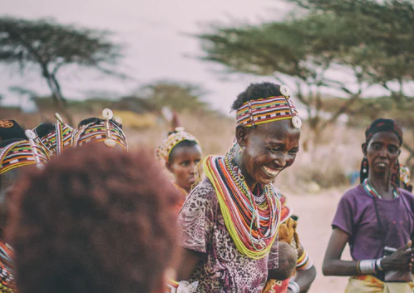Re-thinking nature-based solutions: seeking transformative change through culture and rights

This briefing aims to contribute to conversations and negotiations in the creation of the post-2020 Global Biodiversity Framework. It is one of a series of briefs co-authored by Forests Peoples Programme and partners to explore the policy implications of the findings of the Local Biodiversity Outlooks report, which gives perspectives of indigenous peoples and local communities on the implementation of the Strategic Plan for Biodiversity 2011–2020.
The brief examines the ways in which increased clarity and rigour are needed for NbS to be effective in bringing financial and technical support where it is most needed. The key messages are quoted as follows:
- A clear target is needed for increasing the extent of legal recognition of indigenous peoples’ territories, and other community lands.
- Upholding people’s rights can enable transformative change and indigenous peoples’ tenure rights, in particular, must be recognised as part of the solutions.
- Nature-based solutions situated on or impacting on indigenous peoples’ lands and territories must not proceed without full recognition of their rights and with their free, prior and informed consent.
- Culture and nature are intimately connected and solutions to our climate and biodiversity crises must harness both.
- Nature-based solutions must not allow big polluters to simply offset continuing emissions but rather drive financial and technical support to positive solutions.
- Financing for systemic change to tackle biodiversity loss and climate change must also address unsustainable consumption and production.
- Any target for expanding protected and conserved areas should have legally binding safeguards and mechanisms for oversight and accountability.
The briefing says that offsetting emissions ‘should be off the table’ since it delays polluters from making the size of emission cuts needed now, and it can transfer the responsibility of reducing emissions to the poorest countries in the world, permitting the richest countries to minimise any changes in behaviour.
Read the full briefing paper here.




